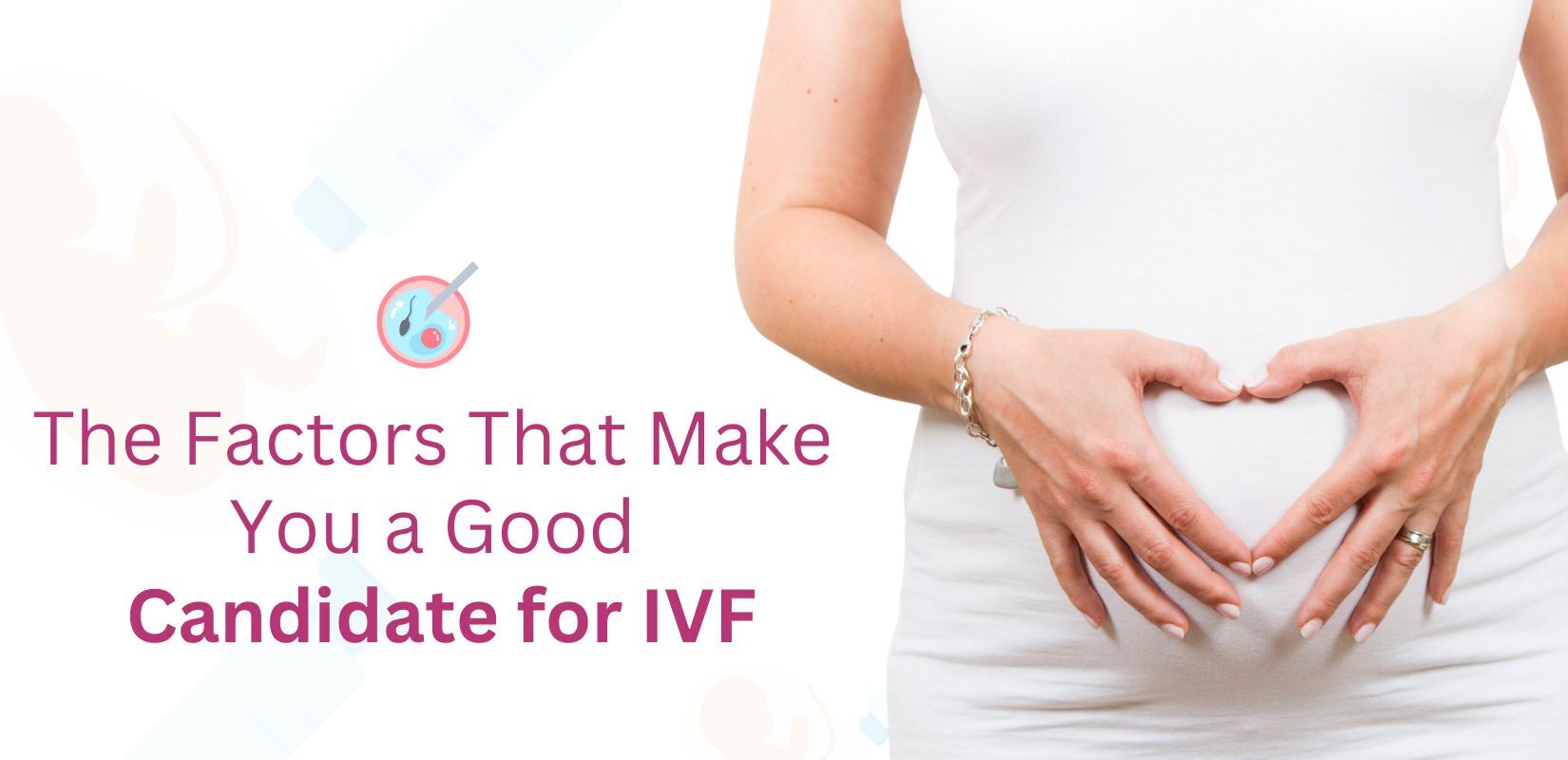
In vitro fertilization (IVF) is a well-known fertility treatment option that can help couples struggling with infertility. This article aims to provide valuable insights into determining whether you are a good candidate for IVF. We will discuss the various factors that may make IVF a suitable option for you and highlight the importance of seeking professional advice from a reputable fertility clinic.
Infertility can result from a variety of factors, such as blocked or damaged fallopian tubes, male factor infertility, endometriosis, unexplained infertility, or advanced maternal age. IVF is a fertility treatment that involves fertilizing an egg with sperm outside the body and then transferring the resulting embryos into the uterus.
IVF may not be the first-line treatment option for all couples experiencing infertility. It is crucial to consult with a healthcare provider who specializes in reproductive endocrinology and infertility to explore all possible treatment options and determine the best course of action for your specific situation.
One common reason for recommending IVF is when a woman has blocked or damaged fallopian tubes. The fallopian tubes play a crucial role in facilitating the meeting of the egg and sperm for fertilization. In cases where the fallopian tubes are obstructed or damaged, IVF offers an alternative by bypassing the need for the tubes.
By undergoing IVF, the eggs are retrieved from the ovaries and fertilized with sperm in a laboratory dish. The resulting embryos are then transferred directly into the uterus, circumventing the need for the fallopian tubes. This approach increases the chances of successful fertilisation and pregnancy for women with this specific fertility barrier.
Male factor infertility, characterized by low sperm count or sperm motility issues, can also be a reason for considering IVF. During the IVF process, the sperm is directly introduced to the eggs in a controlled laboratory environment. This technique ensures that the sperm has a better chance of fertilizing the eggs, even if there are underlying male fertility issues.
IVF clinics have advanced technologies and expertise in handling sperm-related infertility problems. By opting for IVF, couples can overcome male factor infertility and increase their chances of achieving a successful pregnancy.
Endometriosis is a condition in which the tissue lining the uterus grows outside of it. This condition can cause fertility problems by interfering with the normal functioning of the reproductive organs. Women with endometriosis may benefit from IVF as it provides a way to bypass the obstacles created by this condition.
With IVF, eggs are retrieved from the ovaries and fertilized in a laboratory dish. The resulting embryos are then transferred into the uterus, allowing them to implant and develop into a pregnancy. By circumventing the challenges posed by endometriosis, IVF offers hope to couples struggling with this condition.
In some cases, couples may face infertility without a clear underlying cause. This condition is known as unexplained infertility. When no specific reason can be identified, IVF may be recommended as a treatment option.
IVF provides a comprehensive solution by directly addressing the fertilization process outside the body. The eggs are retrieved and fertilized in the laboratory, ensuring that fertilization occurs successfully. The resulting embryos are then transferred into the uterus, increasing the chances of achieving a successful pregnancy.
As women age, their ovarian reserve decreases, making it more challenging to conceive. Women over the age of 35 often face difficulties in getting pregnant. IVF can be a suitable option for women in this age range who have been trying to conceive for a prolonged period.
IVF allows women to undergo ovarian stimulation, where hormonal injections stimulate the ovaries to produce multiple eggs. These eggs are then retrieved and fertilized in the laboratory, providing a higher chance of successful fertilization. By opting for IVF, women with advanced maternal age can increase their chances of achieving a healthy pregnancy.

It is crucial to seek professional advice from a reputable IVF clinic to determine whether IVF is the right treatment option for you. A specialized fertility clinic, such asJuhi Fertility Centre, can provide the necessary medical evaluation, diagnosis, and treatment required to overcome infertility.
Juhi Fertility Centre is known for its expertise in fertility treatments, including IVF, IUI, donor egg/sperm, and surrogacy. The clinic boasts state-of-the-art facilities, including an IVF laboratory that meets international standards, advanced ultrasound equipment, and well-equipped operation theatres.
At Juhi Fertility Centre, personalized care is a top priority. Each patient receives individualized attention and support throughout their fertility treatment journey. The clinic also recognizes the emotional and psychological challenges associated with infertility and provides counselling and support groups to help couples cope with the stress of fertility treatment.
Affordability is another aspect emphasised by Juhi Fertility Centre The clinic offers various treatment options at affordable prices, ensuring that fertility treatments are accessible to a wider range of patients.
IVF medications play a crucial role in the success of the IVF process. These medications are used to stimulate the ovaries, control ovulation, and prepare the uterus for embryo transfer. The specific medications and dosages used during IVF may vary depending on individual patient needs.
Commonly used IVF medications include:
It is essential for patients to follow their medication schedule and dosage instructions carefully to optimize their chances of success.
In vitro fertilization (IVF) is a viable treatment option for couples experiencing infertility due to various factors, such as blocked fallopian tubes, male factor infertility, endometriosis, unexplained infertility, or advanced maternal age. By bypassing fertility barriers, IVF offers hope to couples striving to achieve their dream of parenthood.
It is crucial to consult with a healthcare provider specializing in reproductive endocrinology and infertility to determine whether IVF is the right course of action for you. Reputable IVF clinics, like Juhi Fertility Centre in Hyderabad, provide comprehensive fertility services, personalized care, and emotional support to help couples overcome infertility and turn their dreams into reality.
Remember, every infertility journey is unique, and seeking professional advice is the first step towards finding the most suitable treatment option for you.
Your email address will not be published. Required fields are marked *